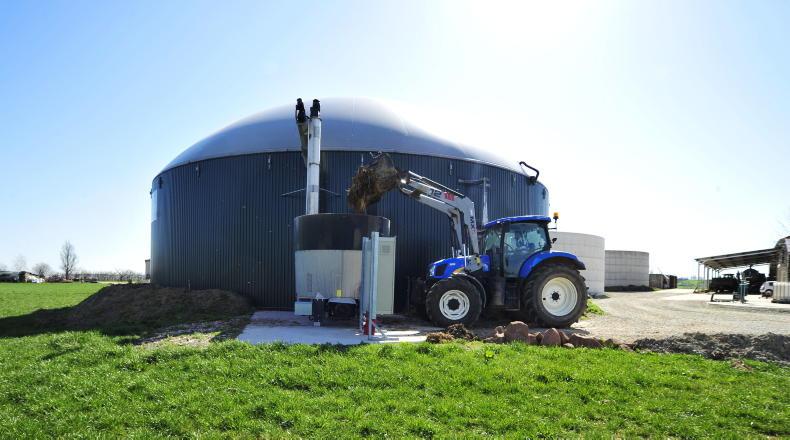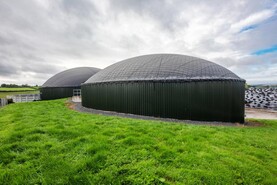This decade will be a defining one for the renewables sector.
Ireland did not meet its 2020 target of 16% for renewable energy in our final energy use, instead reaching 12%.
The attention is now firmly on reaching our commitments out to 2030 and beyond.
Ireland’s National Energy and Climate Plan, published last year, sets a target of at least 34.1% renewables in our energy mix by 2030. The overall EU target is to achieve 32% renewable energy in the bloc by 2030.
These renewable energy targets are underpinned by the Government’s and European Commission’s commitment to reduce overall greenhouse gas emissions by 51% and 55% by 2030, respectively.
Ireland has to get serious about renewable energy and after decades of pondering, it now appears that we finally are. Make no mistake, the challenge is great. But with challenges come opportunities.
This article will detail the key Government renewable energy schemes currently in operation and those that will be introduced this year which will create opportunities for farmers.
Micro-generation Support Scheme
The much anticipated Micro-generation Support Scheme (MSS) is due to be launched later this year. The scheme will encourage the installation of micro- and small-scale renewable electricity generators in homes, farms and businesses and community groups. A key aspect of the scheme is that it will allow surplus electricity produced from these renewable energy generators to be sold back to the grid.
It is expected that the Commission for Regulation of Utilities (CRU) will publish a draft framework later this year which will outline the details, including eligibility criteria and timescales for the introduction of a clean export guarantee payment, paid by electricity suppliers, for exported renewable electricity.
While the final terms of the scheme have yet to be announced, eligible technologies are expected to include solar PV, hydro and wind, with a maximum electrical output of 50kW and biogas combined heat and power (CHP) plants limited to 30kW.
The proposed MSS will encourage as much self-consumption as possible, with only surplus electricity being exported to the grid. It is proposed that at least 70% of the electricity generated by those participating in the scheme must be used on site.
Therefore, the real financial benefit to farmers is the savings they will make by not having to purchase retail electricity to power their farm.
Renewable Heat Obligation
Currently, 6.3% of Ireland’s heat sector fuel demand comes from renewable sources, which is the lowest percentage of any member state and well below the European Union average of 22%.
The heat market is twice the size of the electricity market and results in the equivalent of 12.6m tonnes of carbon emissions (2019 figures). Therefore, increasing the share of sustainable renewables in this sector is vital.
In August, the Government launched a consultation on a Renewable Heat Obligation Scheme (RHO).
The RHO, if introduced, would require suppliers of fuel used in the heat sector in Ireland to ensure a certain proportion of the fuel comes from renewable sources. Initially, this share will be low, but will gradually increase each year out to 2030.
The scheme will see a significant market develop for biomethane produced from farm anaerobic digestion plants (AD). Indigenously produced biomethane injected into the gas grid will likely be the lowest-cost renewable fuel source available to suppliers.
This will present opportunities for farmers to either develop AD plants of their own or to supply feedstock to other plants.
While the consultation is still open, it is expected that this scheme could be in place as early as 2023.
Support Scheme for Renewable Heat
The Support Scheme for Renewable Heat (SSRH) was introduced in 2019 to help increase the share of renewables in the heat sector.
The scheme provides installation grants for heat pumps of up to 30%. This includes air-source heat pumps, ground-source heat pumps and water-source heat pumps.
For biomass and biogas heating systems, the supports are in the form of operational aid based on eligible heat use.
Ongoing quarterly payments will be paid for 15 years based on a tariff which is tiered (reduces as heat output increases). The scheme is particularly relevant to pig and horticulture producers as they typically require plenty of heat.
However, the SSRH has come under criticism due to its strenuous application process and red tape.
Renewable Electricity Support Scheme
The second Renewable Electricity Support Scheme (RESS) auction is due to take place in July 2022.
RESS is the Government’s major renewable electricity scheme launched to help meet Ireland’s target of at least 70% renewable electricity by 2030.
Under the scheme, prospective developers of renewable electricity projects, such as wind and solar farms, bid for support in a competitive auction-based system to secure 15-year Government-backed funding.
The first auction, RESS 1, saw 82 solar and onshore wind farm projects as well as seven community energy projects secure funding.
Large-scale wind and solar projects are expected to make up the bulk of RESS 2’s applicants, well beyond the reach of any farm scale project.
However, there will be opportunities for farmers to engage in community energy projects which are eligible for ringfenced funding under RESS.
Some farmers will also have the opportunity to engage with developers for long-term leasing arrangements for wind and solar farms, as well as battery storage.






 This is a subscriber-only article
This is a subscriber-only article













SHARING OPTIONS: